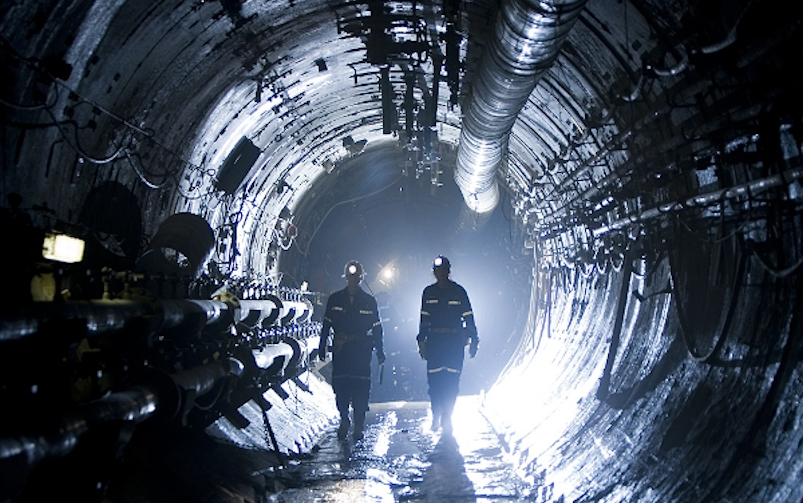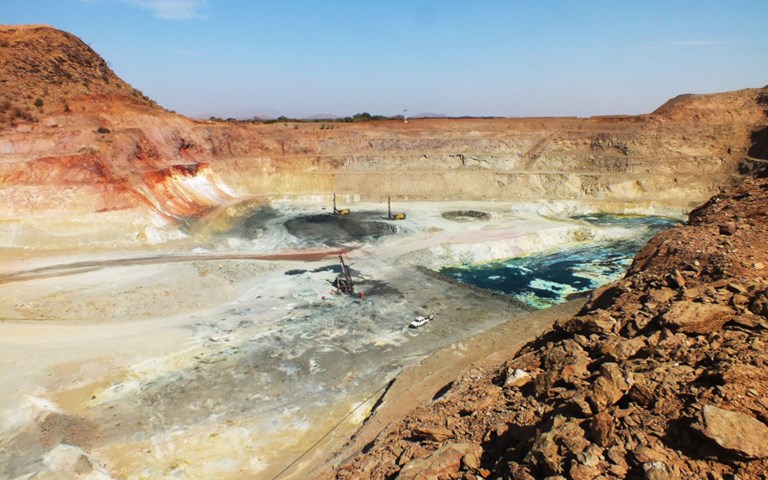Nevsun Resources is accused of knowingly using forced labour at its Bisha mine in Eritrea. Courtesy of Bisha Mining.
On Feb. 28, the Supreme Court of Canada (SCC) ruled in favour of hearing a case against Nevsun Resources by former workers at its Bisha mine in British Columbian court, and not in Eritrea where the mine is located.
The lawsuit against Nevsun, which was acquired by Chinese company Zijin Mining in December 2018, was first filed by three Eritrean men in November 2014. The plaintiffs accused Nevsun of partnering with the Eritrean military and state-run contractors which deployed forced labour to build the mine. They allege that as military conscripts of the Eritrean government, they were forced to work for a military contractor at the mine and that Nevsun was complicit in their treatment.
Nevsun’s latest appeal to the SCC is its third unsuccessful bid to avoid holding trial in Canada. In 2017, the British Columbia Court of Appeal rejected Nevsun’s claim that as the alleged abuses were carried out by the Eritrean government, it is an internal matter which should be heard in Eritrean courts, rather than in Canada.
At the SCC, Nevsun similarly argued that having the trial in Canada would intrude on Eritrean sovereignty, which was rejected. The court also allowed charges of slavery, forced labour and crimes against humanity to proceed in the case.
Related: The World Gold Council aims to define and enforce ethical gold mining in the industry
The decision represents an increasing move towards holding mining companies accountable in Canada for their actions abroad. In 2017, the British Columbia Court of Appeals overturned a 2015 British Columbia Supreme Court (BCSC) decision to allow a case against Pan American Silver to be tried in Canada. Brought forth by Guatemalan protesters and victims who were injured after a shooting outside the company’s Escobal mine, the case was resolved in the BCSC in July 2019 and the company issued a formal apology. The suit against Nevsun isis the first time a mass tort claim for modern slavery will proceed to trial in Canada and that a Canadian company could be held responsible for violations of international human rights laws. The trial is expected to take place at the British Columbia Supreme Court in fall 2021.
The SCC’s decision has led some to worry about the effect on Canadian companies working abroad. The Mining Association of Canada (MAC) submitted an intervention on the case to the SCC, asking it to accept Nevsun’s appeal and noting the case could undermine Canada’s place as a major international hub of exploration and mining companies. “MAC’s members and the Canadian mining industry may face the spectre of uncertain and undefined civil liability,” the intervention read. “This would negatively affect the industry and the Canadian economy as a whole.”
After Eritrea gained independence in 1991, President Isaias Afwerki established a compulsory national service program for all Eritreans, including military conscription for an indefinite amount of time. In a 2013 report, Human Rights Watch alleged human rights abuses at the Bisha mine and that Nevsun failed to ensure that forced labour would not be used at the mine.
Nevsun had a 60 per cent stake in the Bisha mine, while the Eritrean National Mining Corporation (ENAMCO), a government organization, owned the other 40 per cent. According to the CBC, the Bisha mine was the only major source of income for the Eritrean regime for a number of years.



